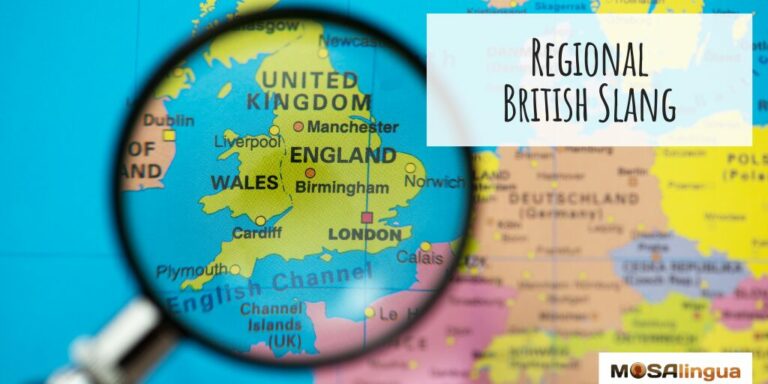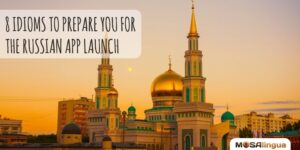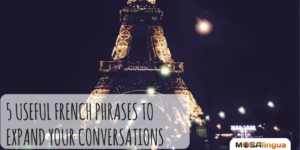We have a fun topic today! You probably know that there are many different English accents across the United Kingdom. But did you know that the slang vocabulary you hear can also change depending on where you are within the country? Today, we’re going to have a look at 25 common British slang words and phrases that you might come across in nine different regions of the United Kingdom.

British slang: 25 words, 9 different regions
Slang is an important part of any language, and if you’re learning British English, you should make a point of working certain expressions into your speech. You’ll need to know these phrases if you want to understand others and sound more native yourself. Many of the words mentioned in this article are used by Brits of all ages. But just like British accents, the slang words and expressions used can vary quite a lot between different regions. Let’s have a look!
Scottish Slang
In Scotland, we have a slightly different accent as well as our own slang words. So let’s start by learning a few common Scottish expressions:
- wee – means “small” or “little”
When I was a wee girl. = When I was a little girl.
I am a wee bit excited for the party. = I’m a little bit excited for the party. - patch – If you “patch” something, you cancel it or decide not to do it anymore.
I’m not feeling well, so I think I’m going to patch the dinner tonight. - eejit – idiot, stupid. This is an insult that you’ll commonly hear in Scotland.
He is such an eejit.
Newcastle
In Newcastle, as well as the surrounding area, we describe people as having a “Geordie” accent. So let’s look at some Geordie slang. You might hear this being used if you are in or around Newcastle, in the North of England.
- us – in Newcastle, it’s pronounced more like “uz,” and it can mean “me” or “myself.”
He called us yesterday. = He called me yesterday. - clamming – very hungry
I’m clamming. = I’m really hungry. - scratcha – bed
I want to go to my scratcha. = I want to go to bed.
Manchester
Manchester has a very particular accent, as well as its own set of slang! You might hear:
- dead – used as an adverb to mean “really” or “very”
That film was dead boring.
I’m dead excited for the party. - keks – trousers (UK) / pants (US)
I bought some new keks, do you like them? - dibble – the police
Liverpool
Next up, we have Liverpool, the home of the Beatles, where you might hear a “scouse” accent. But what slang do they use in Liverpool?
- clobber – clothes
They bought some new clobber. = They bought some new clothes. - a scally – a person who causes trouble.
He’s a scally. - Ta-ra! – Goodbye!
(This expression is very commonly used by Scousers, or people from Liverpool).
Birmingham
You might be familiar with the Brummy accent. This is found in Birmingham. If you’ve watched “Peaky Blinders” you might have heard some of this city’s slang used.
- bonce – head
He bumped his bonce on the ceiling. - mooch – have a look around, visit
They’re having a mooch around Birmingham. = They’re visiting Birmingham.
Yorkshire
Next, we get to Yorkshire, where we have cities such as Leeds, York, Sheffield, and Doncaster. People here have a distinctive accent and… yes, some particular slang words too.
- bob into – go into
to bob into a shop = to go into a shop - jiggered – extremely tired / broken
He is jiggered.
My bike is jiggered.
Wales
You can tell if someone is from Wales. Again, they have a different accent from other parts of the UK, and they have some slang words that are not common in other regions.
Do you want a few examples? Let’s go!
- lush – beautiful, attractive, or great
In Wales, the scenery is lush. - chopsy – cheeky, rude
They are (being) chopsy. = They are (being) rude/cheeky.
London
If we travel further South, we get to London. In London, there are several specific accents, such as the Cockney accent. Here are a few typical slang words you’ll hear throughout the city:
- dapper – very well dressed
- hench – big and strong
- to have beef with someone – to have a problem with someone, or to be arguing with them
If you visit London, hopefully you won’t get into any beef with anyone!
Also, in the East end of London, there is a specific dialect called “cockney.”
The cockney accent is very distinctive, but it’s also where rhyming slang originates. Cockney rhyming slang is a type of slang where the last word used rhymes with the true meaning of the phrase.
Confused? Let’s look at a couple of examples:
- apples and pears
He’s walking up the apples and pears. = He’s walking up the stairs.
Pears, stairs: these words rhyme - bread and honey
May I borrow some bread and honey? = May I borrow some money?
Money and honey rhyme
Rhyming slang can be fun to learn, and it can help you out if you plan to visit or live in this area of London.
Bristol
The Bristolian accent is known for its unique pronunciation, vocabulary, and intonation. Let’s also look at some slang used in Bristol.
- keener – someone who is very hardworking or eager to please
- proper – really good
That film was proper. - babber – a term of endearment, similar to saying “babe” or “lover”
Wow. That was a lot of slang. I hope you learned something new from this list. Of course, there are many more different dialects in the UK and lots of slang that we haven’t even covered. But I hope you’ve gotten an idea about the differences in language use in the UK and how varied British slang is!
WATCH – British Slang: 25 UK Slang Words You’ll Want to Learn
You can also listen to the pronunciation of each of these new expressions by watching this video by our (Scottish) British English instructor, Lizzie-Jane. It’s in English, of course, but there are subtitles available in French, English, and four other languages. You can turn them on by clicking the settings gear at the bottom right corner of the screen.
Subscribe to our YouTube channel!
Go further
If you’d like to learn more about slang in different languages, you might enjoy:
- The 10 Most Popular French “Verlan” Words [VIDEO]
- 10 Spanish Slang Words to Sound More Like a Native [VIDEO]
- 13 Portuguese Slang Words to Sound Like a Brazilian [VIDEO]
- 10 Essential Italian Slang Expressions [VIDEO]
- German Slang Words to Sound Like a Native Speaker [VIDEO]




Comments